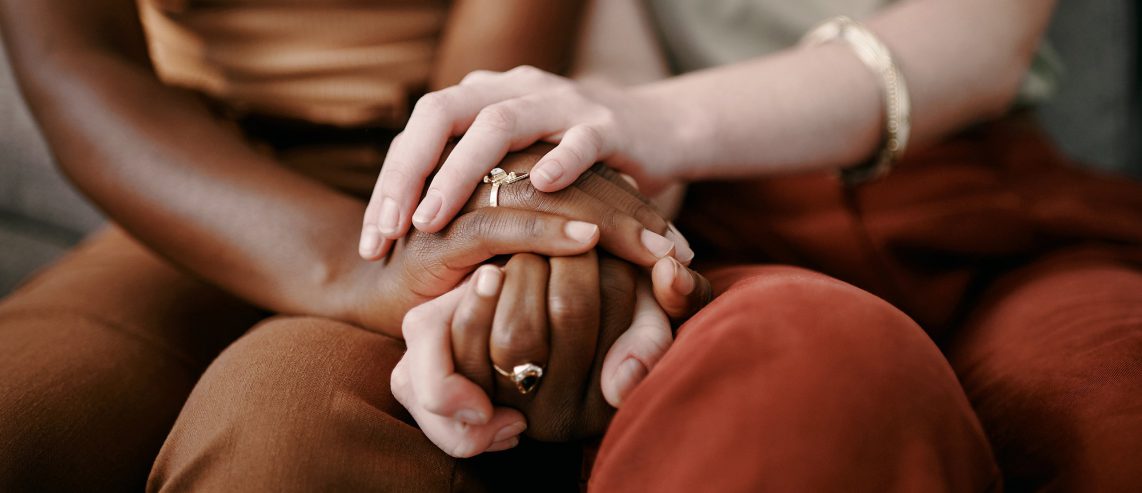People from all walks of life may use and become addicted to substances.
Individuals who identify as lesbian, gay, bisexual, transgender, queer or questioning, intersex, or asexual, agender, or aromantic (LGBTQ+) often face social stigma, discrimination, and other challenges that people who identify as heterosexual do not. According to the National Institutes of Health’s National Institute on Drug Abuse, they also face a greater risk of harassment and violence.
This creates what sociologists and health care providers refer to as stressors. Sexual minorities are more likely to encounter varied stressors. This can increase the risk of various behavioral health issues, including substance use disorders and addiction.
Knowledgeable health care providers and integrated services are uniquely qualified to help meet the needs of LGBTQIA+ individuals who struggle with substance use issues.
Never Miss a Beat!
Subscribe to Our HealthBeat Newsletter!
Thank you for subscribing!
You can now select the specific newsletters you'd like to receive.
You are already subscribed.
Subscribe to more newsletters in our email preference center.
Sorry, an error occurred. Please try again later.
Get Healthy Tips Sent to Your Phone!
Is the Risk Greater for the LGBTQIA+ Community?
According to a 2020 study from the National Survey on Drug Use and Health (NSDUH), substance use patterns reported by sexual minority adults (those identifying as lesbian, gay, or bisexual) differ from those reported by heterosexual adults. The data suggests that rates of both marijuana use and opioid misuse were higher in sexual minority adults than in the overall adult population.
Similarly, a 2019 National Institutes of Health study indicates LGBTQ+ youth are more likely than their heterosexual peers to start using substances at a younger age. Their substance use also tends to escalate faster than it does for their non-LGBTQ+ peers.
Substance use at a younger age
Many factors can contribute to substance use in LGBTQIA+ youth. Marginalized youth experience unique struggles with their identity. They often face difficulty with self-acceptance as well as social acceptance from peers, family, and friends. In addition, they are more likely to experience:
- Discrimination and barriers to equal access in employment, housing, health care, and public accommodation.
- Fear of rejection and lack of support. Just under 40% of America’s LGBTQIA+ adults say they’ve been rejected by family members or close friends.
- Low personal self-esteem and a tendency to become more isolated and have less support than those whose families accept them.
- Depression because it is one of the most common mental health conditions in the U.S., especially in adolescents.
- Self-harm, such as punching walls, cutting themselves, or banging their head on a hard surface.
- Thoughts of suicide.
Facing the choice of stopping substance use entirely can prove overwhelming without help and support that specifically targets LGBTQIA+ individuals. There is often a lack of understanding of specific issues and concerns that contribute to substance use.
What Is Harm Reduction?
Harm reduction is an established recovery approach that emphasizes engaging directly with people who currently use drugs to prevent overdose and infectious diseases. It separates the person from the behavior and focuses more on the context of substance use, which is potentially harmful.
One example that many can relate to is drinking. Having more than a few drinks is not, in and of itself, bad or harmful. It’s when you put that in the context of other behavior. For example, driving or operating machinery while under the influence can cause harm to the individual and others.
Effective harm reduction with LGBTQIA+ individuals can improve the physical, mental, and social well-being of those served. It offers substance use disorder treatment and health care services to those who are vulnerable. It also helps them to avoid the increasingly risky or dangerous behaviors associated with their substance use.
Better Access to Resources and Help
Everyone should have easy access to resources that help them navigate their health care journey. But finding help and support for substance use can pose challenges for anyone, let alone individuals in marginalized communities.
Finding help for yourself or loved ones who are living with substance use disorder has become easier but still requires determination and advocacy. For LGBTQIA+ individuals, the challenge is greater and often demands more nuance in treatment approaches.
The stigma that individuals who identify as a sexual minority face can stand in the way of the help they need. These societal stressors can also prevent people from coming forward with their health care needs.
Surrounding yourself with people who care is a great first step. See resources on finding a doctor who is also an ally.
Sources
Jennifer K. Felner, MPH, PhD, Jennifer P. Wisdom, MPH, PhD, Tenneill Williams, MS, MPH, Candidate, Laura Katuska, MPH, Sean J. Haley, PhD, MPH, and Hee-Jin Jun, ScD. Psychiatric Services. Stress, coping, and context: Examining substance use among LGBTQ young adults with probable substance use disorders. National Library of Health. Link
National Institutes of Health. Substance Use and SUDs in LGBTQ* Populations. National Institute on Drug Abuse. Link
Olivia Pennelle. LGBTQ+ Recovery Resources Faces & Voices of Recovery. Link
Substance Abuse and Mental Health Services Administration. SAMHSA's National Helpline. U.S. Department of Health and Human Services. Link
About UPMC
Headquartered in Pittsburgh, UPMC is a world-renowned health care provider and insurer. We operate 40 hospitals and 800 doctors’ offices and outpatient centers, with locations throughout Pennsylvania, Maryland, New York, West Virginia, and internationally. We employ 4,900 physicians, and we are leaders in clinical care, groundbreaking research, and treatment breakthroughs. U.S. News & World Report consistently ranks UPMC Presbyterian Shadyside as one of the nation’s best hospitals in many specialties and ranks UPMC Children’s Hospital of Pittsburgh on its Honor Roll of America’s Best Children’s Hospitals. We are dedicated to providing Life Changing Medicine to our communities.
